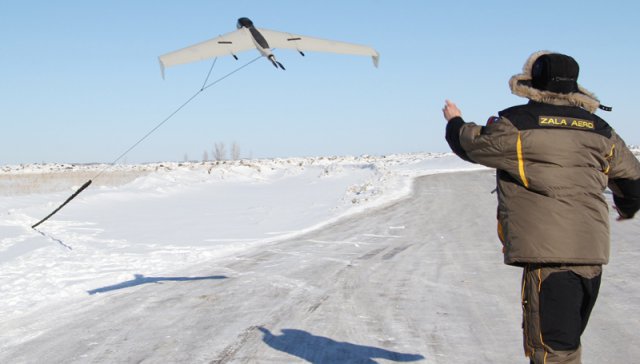If there is suspicious movement at Russia’s Sochi Winter Olympic Games next year, unmanned surveillance aircraft positioned over stadiums, roads and railroads will be there transmitting the images live to Russian security services.
The use of UAS is part of a package of security measures that are severe even by standards of recent Olympics and remind many Russians of the draconian lockdown imposed for the 1980 Moscow Games in the Soviet Union. Authorities will record the Internet and phone connections of all visitors and traffic will be strictly controlled in a huge zone around Sochi. Meanwhile, critics of the Kremlin are already being harassed.
“There will be 24-hour-UAS surveillance,” said Nikita Zakharov, the Deputy Director of Zala Aero, a company that has provided UAS and necessary training to the police and other agencies that will use dozens of them to monitor the area. “The main thing is that you cannot see or hear a UAS,” Zakharov said, calling them an economical solution to various challenges. Along with the unmanned helicopters, all-weather machines with speeds of up to 100 km an hour will zip through the gorges of the Sochi mountains bordering the turbulent North Caucasus region.
Police in Sochi’s Krasnodar region had been using Zala’s UAS to catch traffic violators and pinpoint illicit marijuana crops in cornfields. UAS have also been supplied to the border service, a subsidiary of the Federal Security Service (FSB) that patrols the mountains bordering Georgia’s rebel region of Abkhazia — an area that will be closed off as a restricted zone starting next January. Instead of covering the vast snow-covered area with manpower in tough winter conditions, the service can now equip UAS with an infrared scanner and observe the video feed comfortably from an operations centre.
The Games in Sochi, to be held February 7-23, are meant to showcase the best of modern Russia — a country steered into the 21st century by President Vladimir Putin. But observers say that many security measures in fact hark back to 1980, when authorities closed off the capital Moscow to hold the Summer Olympics. Declassified documents about the Moscow Olympics show that KGB officers impersonated cleaning personnel in hotels, that 6,000 foreigners were on a blacklist, and that police were instructed to prevent “unwelcome persons” from coming to Moscow. Hundreds of kilometres from Sochi, road signs went up last month warning about “limited access” to the city of 300,000 from January 7.
Security in Sochi has been on high alert over fears that militants may stage attacks on the city. Local residents in Sochi over the past month have reported seeing armoured vehicles and other machinery delivered to the city on freight trains. Russia’s federal security service also held several mock counterterrorist operations in the city to prepare for the games.
Source: Oman Daily Observer

